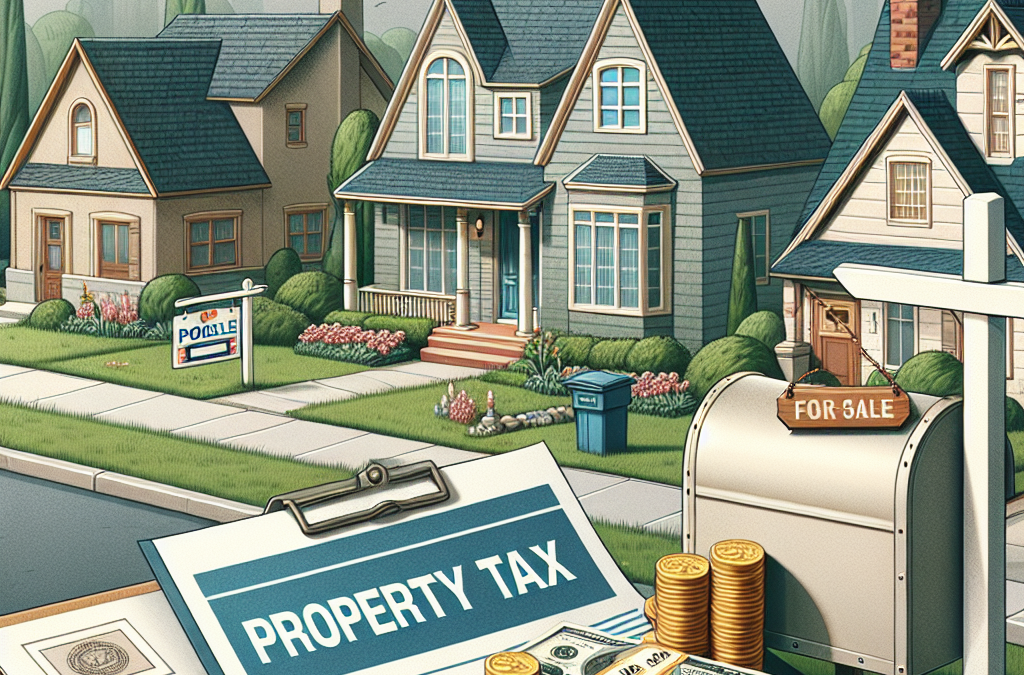Property taxes are an essential source of revenue for state and local governments, funding schools, emergency services, and infrastructure. However, for Connecticut homeowners, these taxes are among the heaviest in the nation. According to a recent report, Connecticut ranks third in the United States for the highest property tax burden, trailing only behind New Hampshire and Illinois.
Why does Connecticut have such high property taxes, and how does this impact its residents? Let’s take a deeper dive into the factors contributing to this burden and what it means for homeowners and potential buyers in the state.
## Understanding Connecticut’s Property Tax Burden
### What Is Property Tax Burden?
The term “property tax burden” refers to the proportion of a homeowner’s income that goes toward paying property taxes. This burden can be particularly high in states that rely heavily on property taxes to fund public services.
In Connecticut, property taxes are not just high in absolute terms; they also account for a significant chunk of household income. According to the recent report, Connecticut residents pay an average of 5.39% of their income toward property taxes, making it one of the most expensive states for homeowners.
### How High Are Connecticut’s Property Taxes?
To put the numbers into perspective:
- The average effective property tax rate in Connecticut is 2.15%, well above the national average of 0.99%.
- Homeowners in the state shell out an average of $6,500 annually in property taxes, with some areas paying significantly more.
- Connecticut has consistently ranked in the top three for property tax burdens over the past several years.
Compared to neighboring states such as Massachusetts and Rhode Island, Connecticut’s property taxes stand out for their staggering cost.
## Why Are Connecticut’s Property Taxes So High?
Connecticut’s high property taxes are the result of several key factors. Understanding these reasons can help homeowners and prospective buyers make better financial decisions.
### 1. No County Government to Spread the Tax Burden
Unlike many other states, Connecticut does not have a county-level government overseeing public services. Instead, each city and town in Connecticut is responsible for funding its own schools, emergency services, and local infrastructure. This means municipalities rely heavily on property taxes to cover expenses.
### 2. High Cost of Public Services
Connecticut consistently ranks among the wealthiest states in the country, with a high median income. While this leads to excellent public services, it also increases the costs associated with maintaining infrastructure, funding education, and paying for essential services such as police and fire departments.
### 3. Declining Population and Shrinking Tax Base
Over the past decade, Connecticut has seen slow population growth and even population declines in some areas. As more residents move to lower-tax states, the number of taxpayers contributing to the system decreases. This forces municipalities to raise property tax rates to compensate for the lost revenue.
### 4. Heavily Funded Public Education System
Education is one of the biggest expenses that property taxes help fund. Connecticut has an extensive and well-regarded public school system, but schools require significant financial resources to maintain a high level of education.
According to the U.S. Census Bureau, Connecticut spends over $20,000 per student annually on education, one of the highest rates in the nation. These costs are paid primarily through property taxes, further increasing the burden on homeowners.
## How Connecticut’s Property Tax Burden Affects Homeowners
The high property tax burden in Connecticut has far-reaching implications for both current homeowners and prospective buyers.
### 1. Higher Homeownership Costs
For buyers considering purchasing a home in Connecticut, high property taxes can make homeownership significantly more expensive. A costly tax bill can impact affordability, making monthly mortgage payments higher than what potential homeowners might expect.
### 2. Impact on Housing Market
Connecticut’s real estate market is directly affected by property tax rates. Homes in high-tax areas may sell more slowly because prospective buyers factor property taxes into their overall cost of living.
This can sometimes lead to:
- Decreased home values in regions with extreme tax burdens.
- Slower housing market growth when compared to states with lower property tax rates.
- Challenges for retirees who may be on fixed incomes and struggle to afford increasing property tax payments.
### 3. Increased Cost of Living
In addition to housing costs, high property taxes contribute to Connecticut’s overall high cost of living. Residents may find that their disposable income is lower compared to those living in states with lower taxation.
## Potential Solutions and Alternatives
While high property taxes remain a reality for Connecticut residents, policymakers have discussed various strategies to alleviate the burden.
### 1. Statewide Property Tax Reform
Some experts suggest restructuring Connecticut’s tax system to rely less on property taxes. This could involve a higher reliance on sales tax or income tax to spread the burden more evenly. However, tax reform remains a complex and politically sensitive issue.
### 2. Regionalization of Services
Since Connecticut municipalities handle their own public services, regionalizing certain governmental functions—like school districts or emergency services—could help lower costs and, in turn, reduce property taxes.
### 3. Property Tax Relief Programs
Connecticut offers some tax relief programs, particularly for seniors and veterans. Expanding these programs could help ease the tax burden for those most affected by high property taxes.
## Final Thoughts
Connecticut’s ranking as the third-highest property tax burden in the country underscores the financial challenges faced by its homeowners. While beautiful landscapes, high-quality education, and strong public services make Connecticut an attractive place to live, the cost of homeownership is significantly impacted by property taxes.
Prospective buyers should factor property tax rates into their home purchase decisions, while policymakers continue to explore ways to balance state revenue needs with taxpayer affordability. Until significant reforms are enacted, Connecticut homeowners will continue to bear one of the heaviest property tax burdens in the nation.

